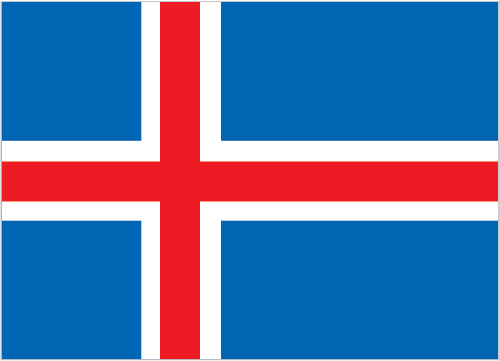
Settled by Norwegian and Celtic (Scottish and Irish) immigrants during the late 9th and 10th centuries A.D., Iceland boasts the world's oldest functioning legislative assembly, the Althing, established in 930. Independent for over 300 years, Iceland was subsequently ruled by Norway and Denmark. Fallout from the Askja volcano of 1875 devastated the Icelandic economy and caused widespread famine. Over the next quarter century, 20% of the island's population emigrated, mostly to Canada and the US. Denmark granted limited home rule in 1874 and complete independence in 1944. The second half of the 20th century saw substantial economic growth driven primarily by the fishing industry. The economy diversified greatly after the country joined the European Economic Area in 1994, but Iceland was especially hard hit by the global financial crisis in the years following 2008. Literacy, longevity, and social cohesion are first rate by world standards.
fish, hydropower, geothermal power, diatomite
arable land: 1.19%
permanent crops: 0%
other: 98.81% (2011)
317,351 (July 2014 est.)
country comparison to the world: 180
homogeneous mixture of descendants of Norse and Celts 94%, population of foreign origin 6%
Evangelical Lutheran Church of Iceland (official) 76.2%, Roman Catholic 3.4%, Reykjavik Free Church 2.9%, Hafnarfjorour Free Church 1.9%, The Independent Congregation 1%, other religions 3.6% (includes Pentecostal and Asatru Association), none 5.2%, other
Icelandic, English, Nordic languages, German widely spoken
definition: age 15 and over can read and write
total population: 99%
male: 99%
female: 99% (2003 est.)
Reykjavik
constitutional republic
1 December 1918 (became a sovereign state under the Danish Crown); 17 June 1944 (from Denmark; birthday of Jon SIGURDSSON leader of Iceland's 19th Century independence movement)
Independence Day, 17 June (1944)